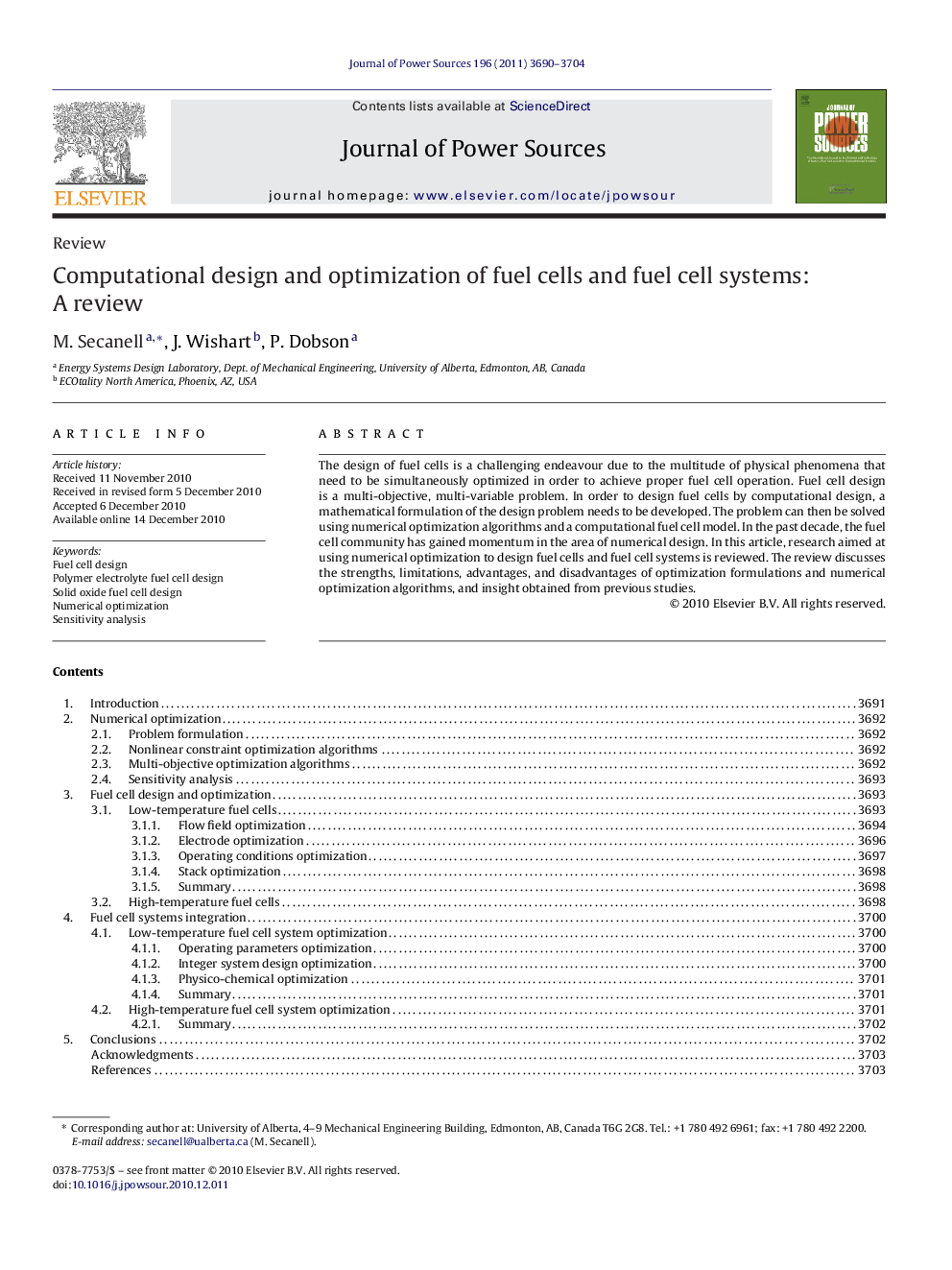| Article ID | Journal | Published Year | Pages | File Type |
|---|---|---|---|---|
| 1289232 | Journal of Power Sources | 2011 | 15 Pages |
The design of fuel cells is a challenging endeavour due to the multitude of physical phenomena that need to be simultaneously optimized in order to achieve proper fuel cell operation. Fuel cell design is a multi-objective, multi-variable problem. In order to design fuel cells by computational design, a mathematical formulation of the design problem needs to be developed. The problem can then be solved using numerical optimization algorithms and a computational fuel cell model. In the past decade, the fuel cell community has gained momentum in the area of numerical design. In this article, research aimed at using numerical optimization to design fuel cells and fuel cell systems is reviewed. The review discusses the strengths, limitations, advantages, and disadvantages of optimization formulations and numerical optimization algorithms, and insight obtained from previous studies.
Research Highlights▶ We highlight the importance of developing numerical optimization formulations for the design of fuel cell and fuel cell systems. ▶ We review numerical optimization formulations presented in the literature for fuel cell and fuel cell system design during the past 15 years. ▶ We present an overview of numerical optimization and multi-objective optimization algorithms used in fuel cell design. ▶ We highlight the key findings in fuel cell design and optimization during the last 15 years. ▶ We provide a discussion on the state-of-the-art in fuel cell optimization and suggest future research topics in the area of fuel cell and fuel cell systems design.
